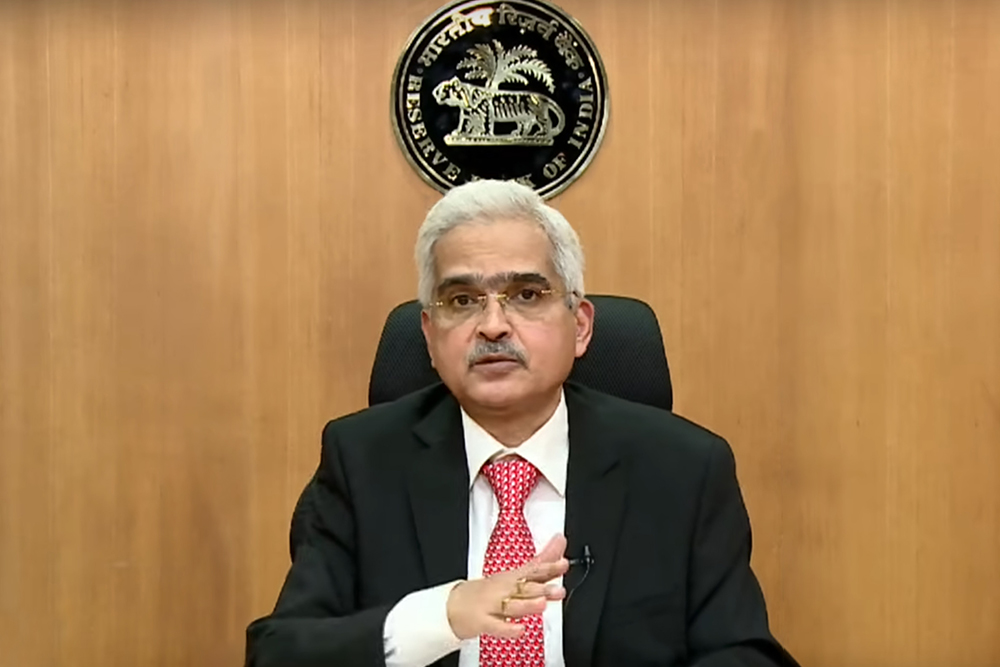Reserve Bank of India, in a bid to support the revival of sectors severely hit by the Covid-19 pandemic, has decided to open a separate liquidity window of Rs 15,000 crore for certain contact-intensive sectors.
Banks may provide lending support with tenor up to three years at the repo rate.
The decision is an addition to RBI’s previous announcement on an on-tap liquidity window of Rs 50,000 crore with a tenure of up to three years at the repo rate till March 31, 2022. The measure was aimed to support the country’s Covid-related ailing healthcare infrastructure.
"By way of an incentive, banks will be permitted to park their surplus liquidity up to the size of the loan book created under this scheme with the Reserve Bank under the reverse repo window at a rate which is 25 bps lower than the repo rate or, termed in a different way, 40 bps higher than the reverse repo rate," Shaktikanta Das said.
The pandemic and its associated containment measures have enveloped the economy with uncertainty. The most vulnerable category of borrowers stuck in this precarious scenario is individual borrowers, small businesses, and MSMEs.
RBI had extended a special liquidity facility of Rs 16,000 crore to SIDBI for on-lending/refinancing through novel models and structure to MSMEs. This facility is available at the prevailing policy repo rate for a period of up to one year, which can be extended further depending on its usage.
Under Resolution Framework 2.0, RBI has enhanced the maximum aggregate exposure from Rs 25 crore to Rs 50 crore for MSMEs, non-MSME small businesses, and loans to individuals for business purposes.
“RBI’s move to enhance the overall exposure from Rs 25 crore to Rs 50 crore under Resolution Framework 2.0 is expected to help more MSMEs, non-MSMEs, and individuals who have taken loans but have been impacted by the pandemic. This will help bring down systemic risks in the banking system,” said Pankaj Sharma, Chief Executive Officer (CEO), Religare Finvest Ltd.
Under the current resolution framework, restructuring should be invoked up to September 30, 2021, and shall have to be implemented within 90 days after the invocation, RBI had said in May.
The Finance Ministry earlier this week expanded the scope of the Rs 3 lakh crore Emergency Credit Line Guarantee Scheme (ECLGS), which will now offer concessional loans to hospitals for setting up on-site oxygen generation plants. The validity of the scheme has been extended by three months to September 30 and or till guarantees for an amount of Rs 3 lakh crore are issued.
The government has also removed the current ceiling of Rs 500 crore of loan outstanding for eligibility under ECLGS 3.0, subject to maximum additional ECLGS assistance to each borrower is limited to 40 per cent or Rs 200 crore, whichever is lower.
Loans to the civil aviation sector have been made eligible under ECLGS 3.0. The ECLGS 3.0 earlier covered business enterprises in hospitality, travel and tourism, leisure, and sporting sectors, which had as of February 29, 2020, total credit outstanding not exceeding Rs 500 crore and overdue, if any, was for 60 days or less, on that date.
“Monetary policy seems very focused on being predictable for now, recognizing fully that there may be a considerable impact of the second wave on incomes and hence demand. Thus even as the recent evolution of global commodity prices and their local spillovers pose interpretational challenges for inflation, the guidance is unaltered and RBI’s enhanced level of commitment to maintain easy financial conditions stands reaffirmed,” Suyash Choudhary, Head – Fixed Income, IDFC AMC.
Edelweiss, in its attempt to strengthen its Co-lending partnership with the Central Bank of India, has signed an MoU under RBI’s CLM. The lenders are aiming to expand the portfolio of MSMEs’ lending products. The MSMEs can now avail of collateral-free business loans up to Rs 50 lakh as against Rs 10 lakh earlier. They can also avail of LAP loans up to Rs 10 crore.
RBI has permitted dealer banks to place margins on behalf of their FPI clients for their transactions in G-sec. Regional Rural Banks (RRRs) have been permitted to issue Certificates of Deposit (CDs) to eligible investors.
"With a view to providing issuers with greater flexibility in liquidity management, it has also been decided that all issuers of CDs will be permitted to buy back their CDs before maturity, subject to certain conditions," Das said.
All CD issuers will be permitted to buy back their CDs before maturity with riders.
“While we do not see any action on the policy rate front in the coming months, we are poised to see a more accountable and action-oriented RBI ahead. We reckon even as yields may inch up gradually and orderly, the RBI will continue to strive to fix skewed yield and maintain its preference for curve flattening (with GSAPs and OMOs). We see net OMO + GSAP purchases to the tune of Rs4.5-5tn in FY22,” Madhavi Arora, Lead Economist, Emkay Global Financial Services.













